By Emily Bare / GICJ
1 October 2022
Executive Summary
Three years have passed since the state-wide protests in Iraq began on the 1st of October 2019. However, one thing remains the same today - the Iraqi people are still suffering grave violations of their human rights and families of the young Iraqis who were killed during the demonstrations are still seeking justice for their loved ones.
For many years before October 2019, the Iraqi people demonstrated for many different purposes. Many of their demands were focusing on basic human rights as well as the prohibition of the death penalty and torture within prisons, the release of arbitrarily detained persons, and that the government provide information to the families of disappeared persons arrested in previous years.
However, the October 2019 demonstrations brought an entirely new set of demands; the Iraqi people were now protesting for a dismantling of Iraq's entire sectarian system of government, which discriminates according to ethnic quotas. Iraq's sectarian system fosters rampant corruption; each party in government strives for their sect to dominate the political field while exploiting the resources of the ministry for which they are in charge. These demonstrators sought after a nation that is for all its people and based on national identity. The demonstrators also envisioned a future government free of any government leaders who participated in the sectarian government since 2003. This would include ministers, military leaders, members of Parliament, and many other high-profile officials who were connected to grave human rights violations and corruption that ended up depleting Iraq's resources. The demonstrators demanded that these officials be stripped of their power and held accountable for all the harm they caused.
October 2019 Demonstrations
Since 1 October 2019, millions of Iraqi people have taken to demonstrations in the streets of several Iraqi cities. These cities include the capital, Baghdad, and hotspots in the Shia-majority areas of the southern part of the country, comprising of Nasiriya, Basra, Kut, Najaf, and Karabala. Despite the legitimacy of their demands and the general peaceful nature of the protests, the demonstrators have been met with abhorrent human rights violations by both the Iraqi government security forces and militias, with numerous killings and serious injuries having been recorded.
The militia and Iraqi security forces have played a prominent role in furthering these violations. Geneva International Centre for Justice (GICJ) has been receiving documentation of the violations since the first hour of the demonstrations. Documented evidence shows that live ammunition and tear gas has been used by security forces since the very beginning of the demonstrations. Documented numbers show that since October 2019, the number of individuals killed has totalled more than 1,000, with more that 25,000 injured. Excessive violence and force, including beatings with rubber batons, stone, and electric sticks was used by security forces during these demonstrations.
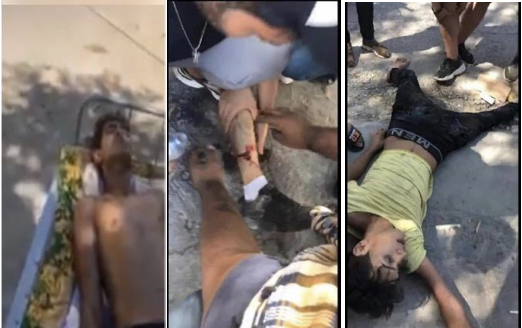 In 2019, the violent acts of the Iraqi militias seemed to be shielded by the Iraqi Prime Minister. The militias knew that there would be no accountability for their actions, that is why pervasive violations continued. These militias confiscated heavy artillery and advanced weaponry and are supported by Iran, rendering them a major power to challenge state security forces and influence the Iraqi government and political landscape.
In 2019, the violent acts of the Iraqi militias seemed to be shielded by the Iraqi Prime Minister. The militias knew that there would be no accountability for their actions, that is why pervasive violations continued. These militias confiscated heavy artillery and advanced weaponry and are supported by Iran, rendering them a major power to challenge state security forces and influence the Iraqi government and political landscape.
Detestably, the involvement of the Iraqi militia and security forces does not end there. From the beginning of these demonstrations, there have been a growing number of demonstrators, human rights defenders, and journalists forcibly disappeared. GICJ sources confirm that more than 700 demonstrators were subjected to abduction and torture in different cities and over the course of time. Most of these abductions occurred while these activists returned to their homes from demonstrations. These abducted detainees were not informed of the reason for their arrest and arrests were carried out without an arrest warrant. Interrogations were carried out without a lawyer present, and detainees were not brought before a judge in the time required by law.
Many of these demonstrators disappeared after their abduction. The whereabouts of these individuals remain unknown, and their families continue to search for their loved ones.
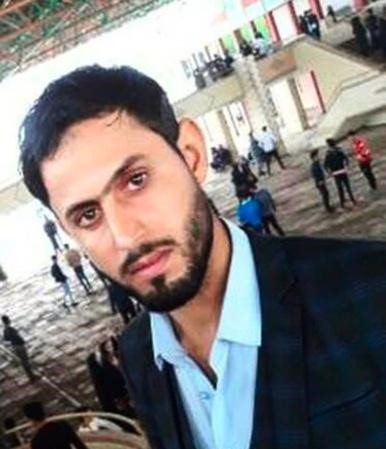
One such victim of enforced disappearance is Ali Jaseb Hattab, a human rights lawyer that disappeared amidst ongoing protests in Iraq on the 8th of October 2019. Ali Jaseb had received a call from a woman asking to meet for work in a central area of Ammarah in al-Mayssan governorate. Shortly after Ali Jaseb arrived, armed men in two black pick-up trucks, suspected of belonging to the Popular Mobilization Unit, dragged him away from his car and drove him away in one of the trucks. Despite the Prime Minister's promise to investigate his whereabouts, there continues to be a lack of progress in his case.
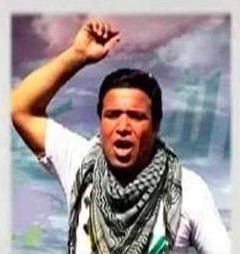
Another victim of enforced disappearance is Jalal al-Shahmani, an anti-corruption activist that was kidnapped by a militia in September 2015. Jalal al-Shahmani was walking in the street in Al Wazeriya neighbourhood in Baghdad when he was stopped by masked individuals in military uniforms, who took him away in vehicles without license plates. His case was sent to the UN Committee on Enforced Disappearances, but his fate remains unknown. His relatives reported his disappearance to the Suleikh police station in Baghdad, but to no avail; they are left without any official information on his whereabouts since the date of his abduction.GICJ has determined that there are many media outlets and politicians, including members of Parliament, who are also actively fuelling the systematic targeting and increased acts of violence against demonstrators. These officials attempt to justify the attacks. The Iranian media justifies the attacks by claiming that the activists that were killed or injured were U.S. foreign agents who wish to damage the Iraqi-Iran relations. The Prime Minister himself has consistently subjected lawyers to threats and intimidation.
Furthermore, the participation of Iraqi women during these demonstrations is of great significance. Not only did these women pioneer the way toward political activism for many others, but they also became leading figures in the demonstrations. With the diminution of women's rights after 2003, these demonstrations provided women with a platform to regain and fight for their rights and freedoms. During the demonstrations, women were able to provide first aid services to victims, prepare food and drink for the protestors, and organise women's marches and demonstrations. Even though women faced great danger by engaging in the demonstrations, such as being subject to abduction, severe injury, or assassination, they put their fear aside to fight for a greater cause.
The Iraqi government has failed to make a concrete effort toward protecting those at risk or pursuing accountability for these crimes. This impunity and utter lack of accountability perpetuates these grave human rights violations. Plagued by corruption and overwhelmed by the systematic interference of the government and the militias, the Iraqi judiciary is incapable of providing victims with redress or holding perpetrators accountable. The right to a fair trial has thus not only been violated but effectively eradicated. The promises of the Iraqi government to eradicate the harm and address the needs of these victims have been blatantly dishonest; the violations have only continued with utter impunity.
Nevertheless, the demonstrators continue, putting their lives at risk, and insist that they will not stop until achieving their goal of building a new democratic system based on equality for every civilian.
United Nations Response
The United Nations Assistance Mission in Iraq (UNAMI) has released six reports on the demonstrations that outline the violence and human rights violations committed against demonstrators. GICJ would like to mention that the information provided by UNAMI is not entirely reliable given the security circumstances in which UNAMI operates, but we refer to them to provide insight into the severity of the violations.
UNAMI has documented that, from the outset, security forces responded to the peaceful protests with excessive force, live ammunition, and the indiscriminate and disproportionate use of less-lethal weapons [1]. It expressed concern about the lack of public information on the identity of those responsible for this demonstration-related violence and found that "the right of many victims and their families to truth, redress and reparation have not been fully respected.[2]"
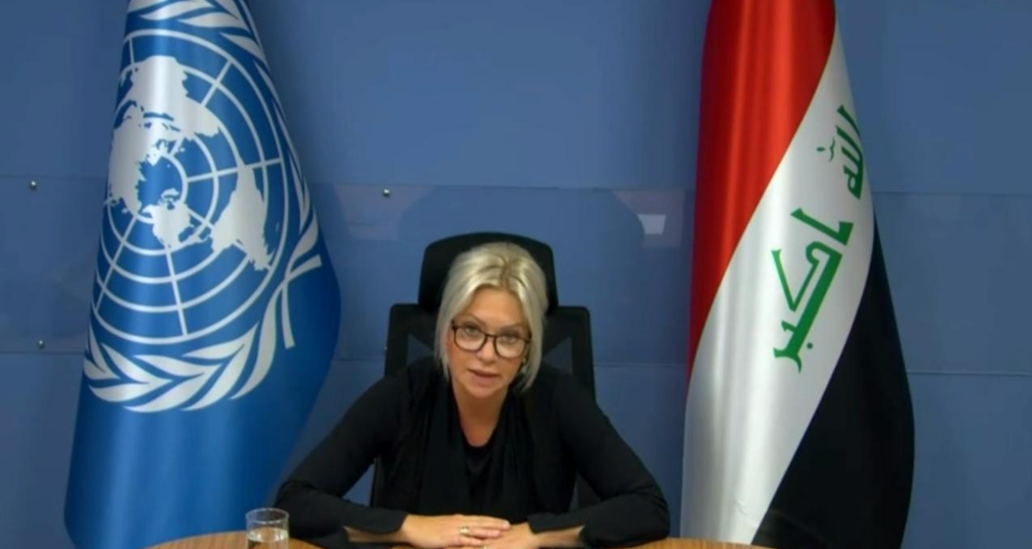 Ms. Jeanine Hennis-Plasschaert, the Special Representative of the UN Secretary-General for Iraq and Head of UNAMI, provided statements to the Security Council on the issue. One statement highlighted that the “continued targeting and killing of activists and human rights defenders” amounts to a “deliberate silencing of peaceful voices.” Another statement recounted the tragic killing of 9 Iraqi civilians and injury of 33 others [3].Of the 9 civilians killed, three were children, one of whom was a one-year-old infant. She concluded by stating that, "Such aggression not only recklessly heightens national and regional tensions but also causes, as we have seen, grave human tragedies."
Ms. Jeanine Hennis-Plasschaert, the Special Representative of the UN Secretary-General for Iraq and Head of UNAMI, provided statements to the Security Council on the issue. One statement highlighted that the “continued targeting and killing of activists and human rights defenders” amounts to a “deliberate silencing of peaceful voices.” Another statement recounted the tragic killing of 9 Iraqi civilians and injury of 33 others [3].Of the 9 civilians killed, three were children, one of whom was a one-year-old infant. She concluded by stating that, "Such aggression not only recklessly heightens national and regional tensions but also causes, as we have seen, grave human tragedies."
When it comes to Iraq, the United Nation's has failed miserably in upholding every one of the basic principles and responsibilities of the Charter. The UN has neglected Iraq, a founding member of the UN, and has failed to address the destruction and suffering of its people.
Despite UNAMI's reporting of these grievous crimes to the Security Council, it has failed to follow up on these reports and has further neglected to report these violations to the Human Rights Council. GICJ strongly encourages UNAMI to aim their efforts toward reporting these crimes to the Human Rights Council and for discussions to be held on the matter at the 52nd Human Right Council session.
Geneva International Centre for Justice Actions
GICJ has continuously documented the human rights violations against civilians, activists, human rights defenders, and demonstrators in Iraq and drawn the attention of the UN relevant bodies and representatives to these violations; particularly the Special Rapporteur on Extrajudicial, Summary, or Arbitrary Execution, High Commissioner for Human Rights, and the Special Representative of the Secretary-General for Iraq and Head of UNAMI. GICJ's efforts to end impunity, for these and other violations in Iraq, have not gone unheard. In part due to all its efforts, the violations against demonstrators have been addressed by UN representatives and the special mandate holders.
Within the first hour of the October 2019 demonstrations, GICJ received documented information about the violations committed against demonstrators by governmental forces. Ever since, GICJ has remained in daily contact with its network on the ground in Iraq.
Following the deaths of more than 150 protesters and more than 6,200 injured in the first week of the demonstrations, GICJ sent a letter to the UN High Commissioner for Human Rights on 7 October 2019, in which it informed the High Commissioner about the main demands of the demonstrators and the violations committed against them since 1 October. GICJ confirmed to the High Commissioner that it did not rely on statements from the government, as it could not be relied upon to provide credible information and take real action. GICJ further stated that Iraq was systematically violating its obligations under the ICCPR. Reiterating its call to all UN bodies to take immediate action on these urgent issues, GICJ urged the UN to dispatch an international and independent commission of inquiry to investigate these violations. Moreover, GICJ urged the High Commissioner to pressure the government to stop using violence against protesters and to work with the international community to ban all militias in Iraq.
On that same day, 7 October 2019, GICJ sent letters to the special mandate holders, including the Special Rapporteur on Peaceful Assembly, Special Rapporteur on Human Rights Defenders, Special Rapporteur on Freedom of Expression, informing them of the situation in Iraq and requesting their intervention.
The first few weeks of February witnessed a drastic increase in the number of demonstrators killed by the Iraqi government, security forces and militias, especially Saraya Al-Salam that stormed several demonstration sites in the capital Baghdad and other cities, such as Basra, Nasiriya, Najaf. In this regard, GICJ requested urgent action in a letter to the High Commissioner for Human Rights on 19 February 2020. GICJ stressed that the time had come for international action towards an independent and comprehensive investigation to ensure accountability in Iraq.
On 13 May 2020, in a letter from the UN High Commissioner for Human Rights to the Minister of Foreign Affairs of the Republic of Iraq in the framework of the Universal Periodic Review of Iraq, the High Commissioner included a call for investigations into the incidents related to the demonstrations since 1 October 2019, stating that the right to freedom of expression and peaceful assembly must be protected and a draft bill on freedom of expression, assembly and peaceful demonstration must be adopted.
Highlighting the increase in the number of extrajudicial, summary, and arbitrary executions carried out by Iraqi security forces and militias since the demonstrations began in October 2020, GICJ sent another letter to the Special Rapporteur on Extrajudicial, Summary, or Arbitrary Executions on 28 July 2020, mentioning specifically the assassination of Mr. Hashim al-Hashimi.
The month of August 2020 witnessed another drastic surge in abductions and assassinations of activists and demonstrators in Iraq, prompting GICJ to appeal for urgent assistance in two separate letters to the High Commissioner for Human Rights and the Special Representative of the Secretary-General for Iraq and Head of UNAMI on 18 August 2020.
Less than a week later, on 25 August 2020, GICJ sent a follow up letters to the High Commissioner and the Special Representative in light of the surge in assassinations and assassination attempts, raising the number of victims to over 20 in less than one week. GICJ stressed the imperative nature of the intervention of the High Commissioner and all relevant UN human rights bodies. The main demand is the urgent need for international action to dissolve the militias in Iraq because they are the main perpetrators of these human rights violations.
The grave human rights violations against the demonstrators including the assassination operations, enforced disappearances and systematic targeting of activists, journalists, and human rights defenders were the main subject of an urgent appeal that GICJ received on 21 August 2020 from 134 Iraqi activists, human rights defenders, and observers from across Iraq. They expressed their deep concern at the deteriorating security situation and called on the UN human rights bodies to intervene.
Apart from these letters to UN representatives, GICJ has also persistently drawn the attention of the Human Rights Council to the situation in Iraq, leading up to and following the commencement of the demonstrations on 1 October 2019. GICJ has delivered many oral statements and submitted several written statements drawing the Human Rights Council’s attention to the situation and calling for their urgent action to address the violations.
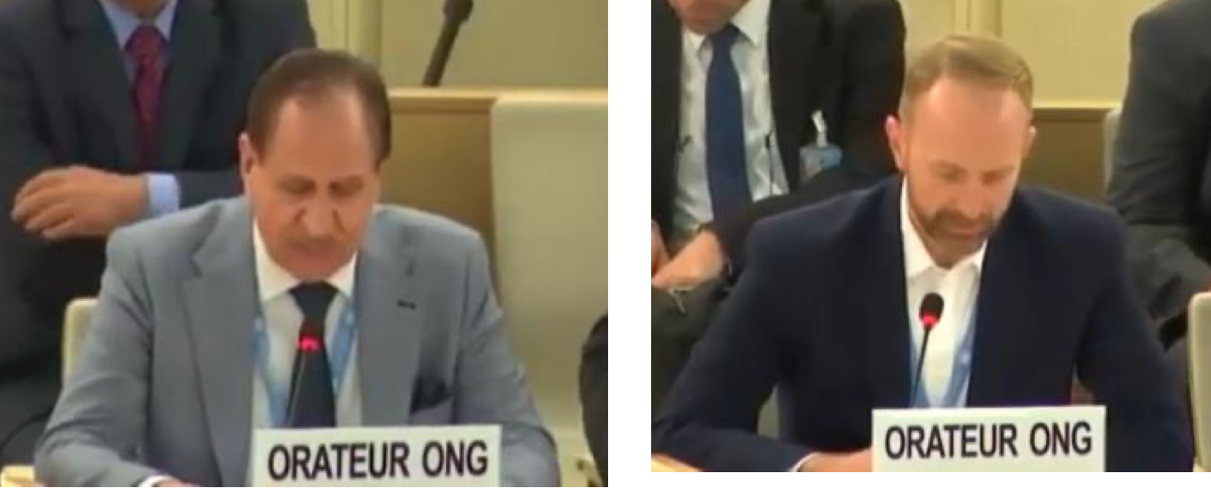
GICJ addressed the demonstrations at the following sessions: 41st Session of the Human Rights Council, 24 June 2019 to 12 July 2019, the 42nd Session of the Human Rights Council, 9 September 2019 to 27 September 2019, the 43rd Session of the Human Rights Council, 24 February 2020 to 23 March 2020, the 44th Session of the Human Rights Council, 30 June 2020 to 17 July 2020, and the 45th Session of the Human Rights Council, 14 September 2020 to 06 October 2020.
Further, on 9 September 2020, Geneva International Centre for Justice (GICJ) participated in the 19th session of the Committee on Enforced Disappearances by submitting an updated report focusing primarily on the violations against the demonstrators, activists, and human rights defenders in Iraq. The report stressed to the Committee the complete and utter lack of action by the government in combatting these violations and holding the perpetrators accountable.
Concluding Remarks
Three years have passed since the demonstrations in Iraq began and the violations continue to occur. Perpetrators still carry on with impunity. The Iraqi community continues to live in fear just by exercising their fundamental rights.
The corruption of the judicial system within Iraq has furthered the existence of these violations and justice seems out of reach for many victims. While the international community touts their dedication to pursuing accountability for human rights violations, these words are not heard or felt by the Iraqi people.
How long will this issue persist before the international community decides to do something about it? How many more people must die before accountability measures are put into play? How much longer must these demonstrators put their lives on the line before the government of Iraq decides to change their ways and grant equality for all its citizens? These are the questions that we all must ask ourselves. As we all peacefully lay down at night to rest, others are crying out in aguish waiting for their pleas to finally be heard.
GICJ will continue to pursue justice for the Iraqi people and demand accountability for the violations committed against them. Despite our repeated calls for action, the international community and the United Nations have been complacent in their response. They have not taken the Iraqi peoples’ plight and suffering seriously, and it is this laxity which has emboldened perpetrators to not only continue the violations, but to escalate them.
The international community should stop turning a deaf ear to Iraq and finally start examining this issue that so evidently and relentlessly persists in front of them. It has now been three years since the demonstrations, and the loss of life continues with each persisting day. We plead to the community to listen and help these demonstrators achieve a better future.
We repeat our calls to establish an independent, international Commission of Inquiry to investigate all human rights violations in Iraq since 2003, to hold all perpetrators accountable. We also call on all UN relevant bodies to take all required measures to put an end to these grave human rights violations.
Iraq, Demonstrations, Protests, arbitrary detentions, enforced disappearances, Geneva International Centre for Justice, GICJ,
[1] See UNAMI Special Report Demonstrations in Iraq 1-9 October 2019
[2] See UNAMI Special Report Demonstrations in Iraq: 6th Update
[3] See Special Representative of UN Secretary-General Statement to the Security Council




